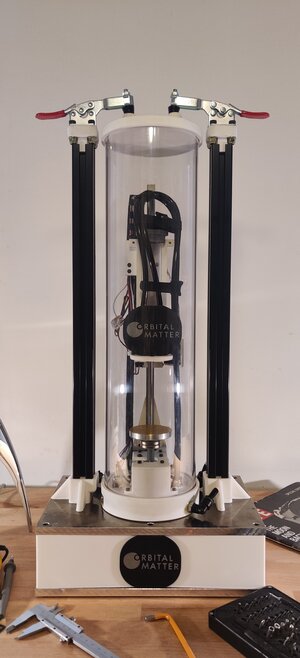
The Replicator mission, from Warsaw, Poland, and Berlin, Germany, based startup Orbital Matter, will launch on Ariane 6 to demonstrate a new 3D printing technology in orbit, potentially opening the door to new space structures that wouldn’t have been possible otherwise, made using fewer resources.
The name ‘Replicator’ is a homage to the many forms of advanced manufacturing methods in science fiction, capable of making complex products, ready to use: Star Trek’s kitchen microwave-like Replicators could synthesise meals on demand; the Von Neumann Probe is a conceptualised spacecraft capable of exponentially self-replicating; and in the Stargate series, Replicators are a highly advanced machine race capable of reproducing themselves indefinitely.
Orbital Matter doesn’t plan to churn out burgers or machine-like people, their long-term goal is to become the first construction company in space – one day manufacturing large elements of space infrastructure directly in orbit, on the Moon and Mars, in-so-doing reducing costs and increasing access to space. Their new method of 3D printing has been developed to work directly in a vacuum and under microgravity, without requiring heat to be generated during manufacturing. As there is no atmosphere to cool down parts via convection cooling, like blowing on a spoonful of hot soup, it takes a long time – months – for parts to cool down just through irradiation (simply waiting for the soup to lose heat). Orbital Matter’s process prints without heat, making it much faster to build structures in a vacuum.



